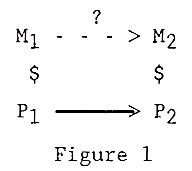Jaegwon Kim facts for kids
Quick facts for kids
Jaegwon Kim
|
|
|---|---|
| Born | September 12, 1934 |
| Died | November 27, 2019 (aged 85) |
| Alma mater | Dartmouth College Princeton University |
| Era | 20th-century philosophy, 21st-century philosophy |
| Region | Western philosophy |
| School | Analytic |
| Institutions | Brown University |
| Doctoral advisors | Carl Gustav Hempel |
|
Main interests
|
|
|
Notable ideas
|
Reductive physicalism Weak supervenience |
|
Influences
|
|
|
Influenced
|
|
| Korean name | |
| Hangul | |
| Hanja | |
| Revised Romanization | Gim Jaegwon |
| McCune–Reischauer | Kim Chaegwǒn |
Jaegwon Kim (born September 12, 1934 – died November 27, 2019) was a famous Korean-American philosopher. He was a professor of philosophy at Brown University. He also taught at many other top universities in the United States. Kim is best known for his ideas about how our minds and bodies work together. He also studied how events happen and how different things relate to each other. His work helped shape modern ideas in philosophy.
Contents
About Jaegwon Kim's Life
Kim started college in Seoul, South Korea. He studied French literature for two years. In 1955, he moved to the United States. He then transferred to Dartmouth College. There, he changed his studies to include French, mathematics, and philosophy. He earned his first degree, a Bachelor of Arts (B.A.).
After Dartmouth, Kim went to Princeton University. He earned his Ph.D. in philosophy there. Later, he became a professor at Brown University. He also taught at other well-known universities. These included Cornell University and the University of Michigan. From 1988 to 1989, he was the president of a major philosophy group. This was the American Philosophical Association. In 1991, he became a member of the American Academy of Arts and Sciences. He also helped edit a philosophy journal called Noûs.
Who Influenced Kim's Ideas?
Kim said that two philosophers greatly influenced him. They were Carl Hempel and Roderick Chisholm. Hempel taught him to be clear and logical in his arguments. Kim learned to avoid confusing or unclear ideas. From Chisholm, he learned not to be afraid of metaphysics. Metaphysics is the study of the basic nature of reality. This helped Kim explore deep questions about the mind and reality. He always respected what science could tell us.
Kim's Philosophical Work
Kim's work focused on several areas of philosophy. These included the philosophy of mind. This area looks at how the mind works. He also studied metaphysics, which explores reality. Other areas were action theory, epistemology, and the philosophy of science.
Understanding the Mind and Body
Kim spent much of his career studying the mind-body problem. This is the question of how our thoughts and feelings relate to our physical brains. He first thought that the mind and body were the same. Later, he believed that the mind was not just physical. He thought that our conscious experiences, like feeling pain or seeing colors, could not be fully explained by just brain activity.
Kim wrote books about this, like Mind in a Physical World (1998). He argued that physicalism (the idea that everything is physical) could not explain everything. He said that the "hard problem of consciousness" was too difficult for physicalism. This problem asks why we have conscious experiences at all. He believed that how things feel to us (like the redness of red) cannot be fully explained by physical science.
In his later years, Kim thought that some mental states could be linked to brain states. These are states like beliefs and desires. But he still believed that our conscious feelings were different. He thought these feelings were not physical. He called this idea "physicalism near enough." Kim believed that science would eventually help us understand the mind. He thought that a natural explanation was needed for how the mind works.
Exploring Reality and Events
Kim also worked on metaphysics. He focused on what "events" are. An event is something that happens. He believed that events are made of three things: an object, a property, and a time. For example, "the ball (object) being red (property) at noon (time)" is an event.
Kim had a theory about when two events are the same. He said they are the same if they happen at the same time and place. They also must show the same property. For example, if you wave ten fingers, that's one event. But it also includes other events, like waving an even number of fingers. Some people thought his theory created too many events.
How We Know Things (Epistemology)
Kim also looked at epistemology. This is the study of knowledge. He disagreed with a popular idea called "naturalized epistemology." This idea suggests that we can understand knowledge just by studying how our brains form beliefs.
Kim argued that this approach was not enough. He said that epistemology should also tell us how we should form beliefs. It should explain what makes a belief justified or true. He believed that simply describing how people think does not explain why some beliefs are better than others. He thought that to truly understand knowledge, we need to consider what makes a belief correct.
Awards and Recognition
- 2014: Kyung-Ahm Prize, from the Kyung-Ahm Education & Cultural Foundation
See also
 In Spanish: Jaegwon Kim para niños
In Spanish: Jaegwon Kim para niños
- American philosophy
- Epiphenomenalism
- Free will
- List of American philosophers
- List of Korean philosophers
- McClamrock, Ron
- Neuroscience of free will
 | Delilah Pierce |
 | Gordon Parks |
 | Augusta Savage |
 | Charles Ethan Porter |


